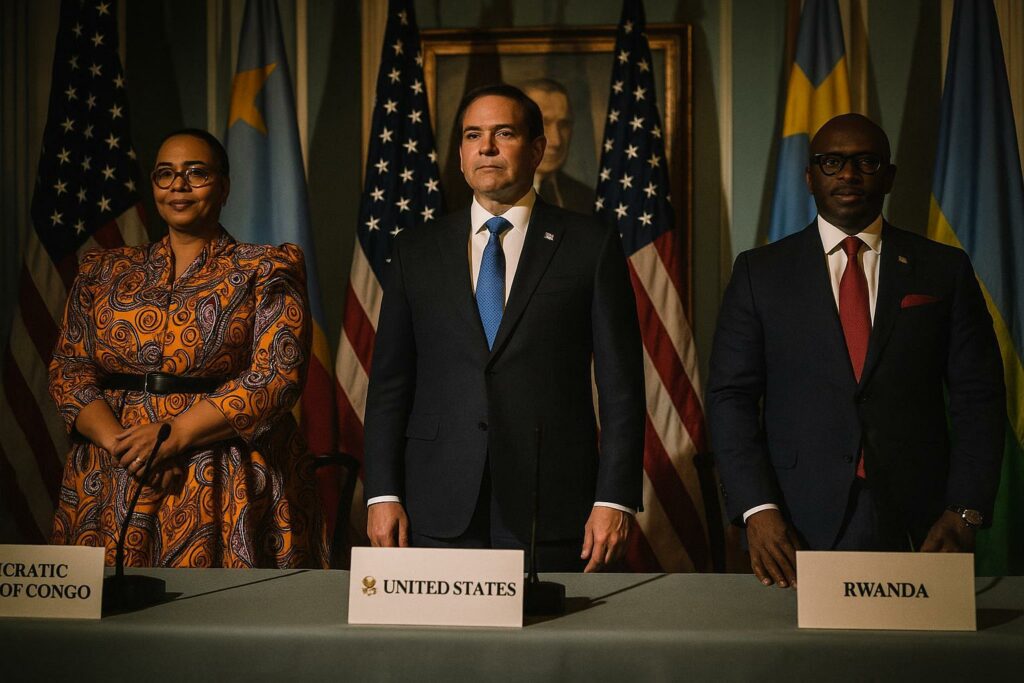A Landmark Agreement in Washington
The imminent peace accord between Congo and Rwanda, slated for signature in Washington on June 27, represents a potentially significant stride towards resolving ongoing hostilities in eastern Congo. This development, announced jointly by the two nations and the U.S. State Department, has fueled hopes for an enduring resolution to a conflict that has long beleaguered the mineral-rich region. However, this upcoming agreement is merely the latest chapter in a protracted saga of diplomatic efforts, often stymied by deep-seated mistrust and historical grievances.
A Complex Web of Allegiances and Accusations
The conflict in eastern Congo is far from straightforward, entangled in a web of accusations and strategic interests. A major source of tension has been Congo’s assertion that Rwanda supports the M23 rebels, a claim corroborated by reports from U.N. experts suggesting that Rwanda has deployed approximately 4,000 troops to bolster the rebel forces. Yet, Rwanda steadfastly denies these allegations, positioning itself as a derisive neighbor frustrated with Congo’s inability to stabilize the region.
The situation turned particularly dire earlier this year, when M23 insurgents captured the eastern city of Goma in January, followed by Bukavu in February. These strategic victories have underscored the potency and persistence of the M23, which diverges from the multitude of factions in the area due to its ethnic composition, predominantly Tutsis, who have historically struggled for full integration into the Congolese army.
The Contents and Challenges of the Agreement
The peace agreement draft reveals ambitions for substantive change, encompassing commitments to respect territorial sovereignty, cease hostilities, and facilitate the disengagement, disarmament, and potential integration of non-state armed entities. Although the endeavor is commendable, it is fraught with challenges, given the fragile nature of prior peace talks, such as those mediated by Qatar, which have fallen victim to geopolitical complexities.
Notably, the ethnic and political undertones driving this conflict imbue the situation with additional layers of difficulty. Paul Kagame, Rwanda’s enduring president, has on multiple occasions criticized the Congolese government, headed by President Felix Tshisekedi, for failing to address the grievances of ethnic Tutsis. Consequently, this peace process must navigate these sensitive dynamics to forestall a recurrence of hostilities.
Historical Context and Future Prospects
The roots of the Congo-Rwanda dispute run deep, entwined with regional aspirations for dominance and historic feuds. Despite not being in a state of formal war, the countries’ past engagements have been marked by failed dialogues, posing a stern test for the durability of this fresh diplomatic overture. Observers like Corneille Nangaa, a prominent figure within the Congo River Alliance, express skepticism towards this agreement as a panacea for the endemic violence, mainly when economic motivations play significant roles behind the scenes.
As the world watches this narrative unfold, the involvement of international powers, notably the United States, lends a degree of gravitas and optimism that this accord might succeed where others have faltered. The possibility of leveraging Congo’s mineral wealth in economic accords as part of peace incentives may signal a novel approach aiming not only to quell violence but to usher in economic prosperity for the region’s inhabitants.

